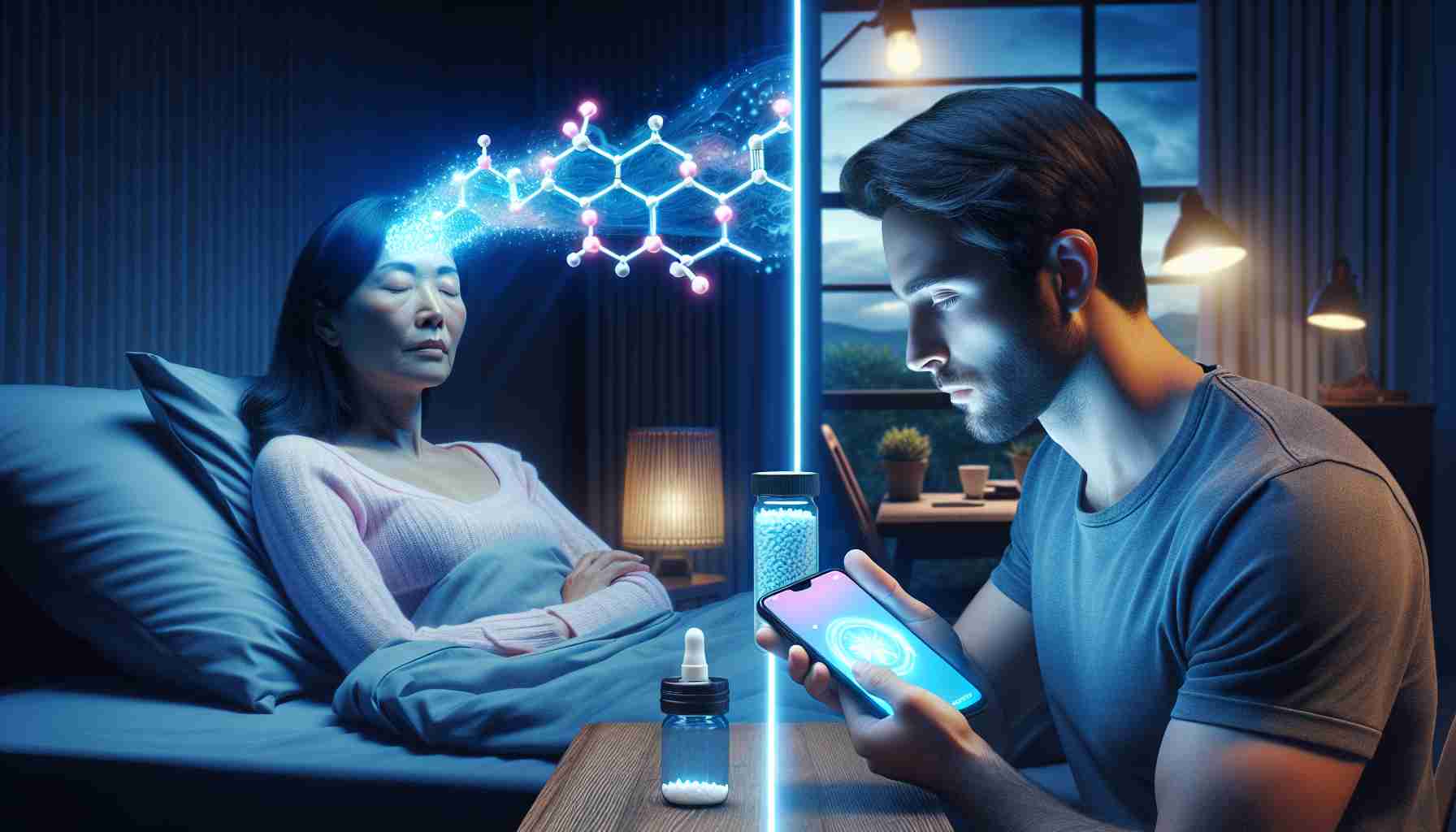There is growing evidence that scrolling through your smartphone before bedtime without using a blue-light filter can lead to decreased melatonin levels in adults. This dip in melatonin, the sleep-regulating hormone, might not recover before sleep, potentially hampering the ability to fall asleep. In contrast, adolescents display a quicker rebound in their melatonin levels, which can return to normal before they go to bed.
This disparity was uncovered through a methodical research project in the field of sleep health. Studying the sleep patterns of 68 young male participants over two weeks, researchers aimed to assess the effects of artificial light on melatonin and sleep quality. The participants, divided into adolescent and adult categories, subjected themselves to different reading conditions in a sleep lab—on a smartphone with and without a blue-light filter, and also from a printed book.
While both age groups experienced heightened sleepiness as the night progressed, the adverse effect on melatonin production was notably more pronounced in adults. Yet, despite this finding, the participants did not report a substantial difference in their subjective sensation of sleepiness based on the mode of reading.
According to the study’s findings, blue-light filters have the potential to mitigate these effects. Adults, though, might benefit from a precautionary approach by avoiding smartphones at least an hour before bedtime to maintain not just their melatonin levels but also their quality of deep sleep, which was slightly diminished during the night when exposed to smartphones without blue-light filters. The study makes it clear that these findings do not endorse the unrestricted use of bright screens before sleep, as a longer exposure could translate into more detrimental disruptions.
This research gives a fresh perspective on managing device use in the hours leading up to sleep and underscores the importance of how artificial light exposure may necessitate different approaches for different age groups. Such insights pave the way for better sleep hygiene practices and potentially the development of more effective blue-light filtering technologies.
Important Questions and Answers
1. What is the impact of smartphone use on sleep?
Smartphone use without blue-light filters can lead to decreased melatonin levels, particularly in adults, disrupting the ability to fall asleep. Adolescents seem to have a quicker rebound of melatonin levels, mitigating potential impacts on their sleep.
2. Do blue-light filters on smartphones help preserve melatonin levels?
Yes, they have the potential to mitigate the adverse effects of blue-light exposure on melatonin production, especially in adults.
3. Should adults avoid using smartphones before bedtime?
It is recommended that adults avoid using smartphones at least an hour before bedtime to maintain their melatonin levels and quality of deep sleep, even with the use of blue-light filters.
Key Challenges/Controversies
– There is a challenge in balancing the use of technology with healthy sleep practices, especially in an age where constant connectivity is common.
– Some controversies may arise regarding the effectiveness of blue-light filters and whether using them is a sufficient measure to combat sleep disruption due to smartphone use.
Advantages and Disadvantages
Advantages:
– Understanding the relationship between smartphone use and sleep can lead to better sleep hygiene practices.
– Blue-light filters can be an easy-to-implement solution to reduce blue-light exposure before bedtime.
Disadvantages:
– Complete avoidance of smartphones before bedtime can be impractical for many adults due to work or personal habits.
– There is a risk of over-relying on blue-light filters, which might not fully compensate for the sleep disturbances associated with smartphone use.
Additional Relevant Facts:
– Exposure to blue light before sleep can also affect sleep architecture, reducing the proportion of REM sleep and disrupting the sleep cycle.
– Not all blue-light filters are created equal, and their effectiveness can vary based on their specific design and how they are used.
– Apart from affecting sleep, excessive nighttime smartphone use has been linked to symptoms of anxiety and depression.
– There are other ways to mitigate blue light exposure, such as using dim red lights for nighttime lights and maintaining a regular sleep schedule.
For further reading on the impact of light on sleep and blue-light filters, you can visit reliable sources such as the National Sleep Foundation at www.sleepfoundation.org or the American Academy of Sleep Medicine at www.sleepeducation.org. These domains provide extensive resources on sleep health and the effects of artificial light exposure.
